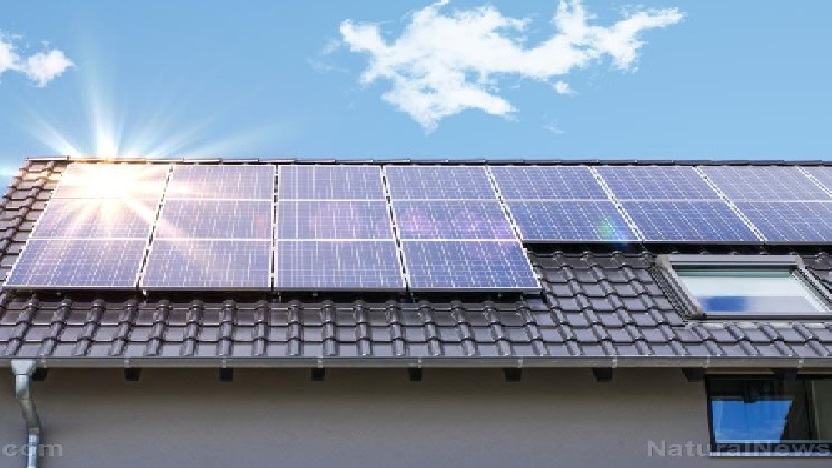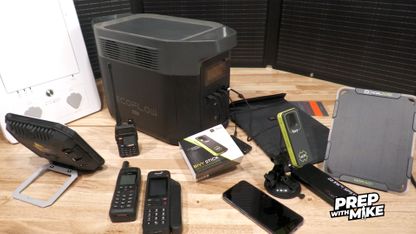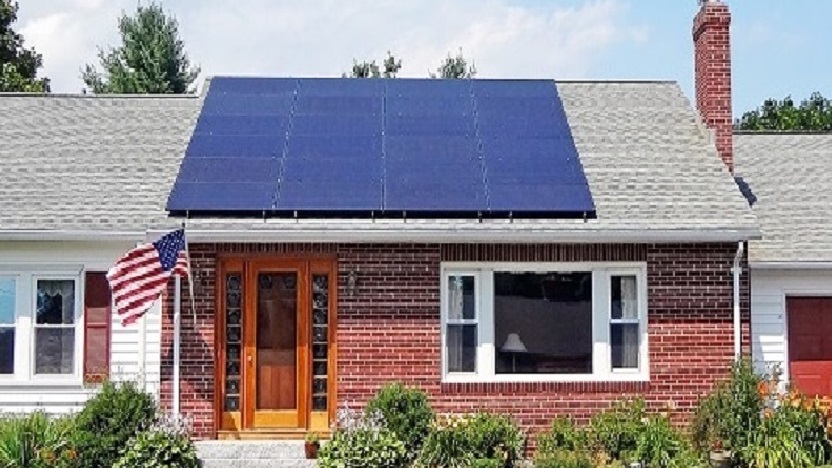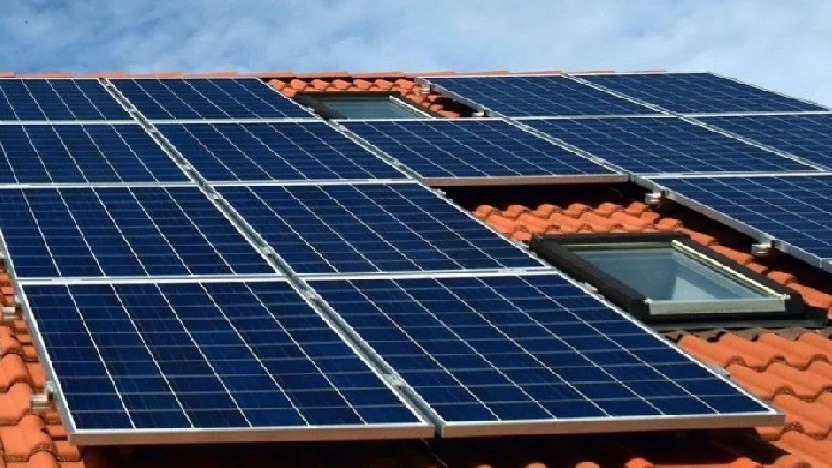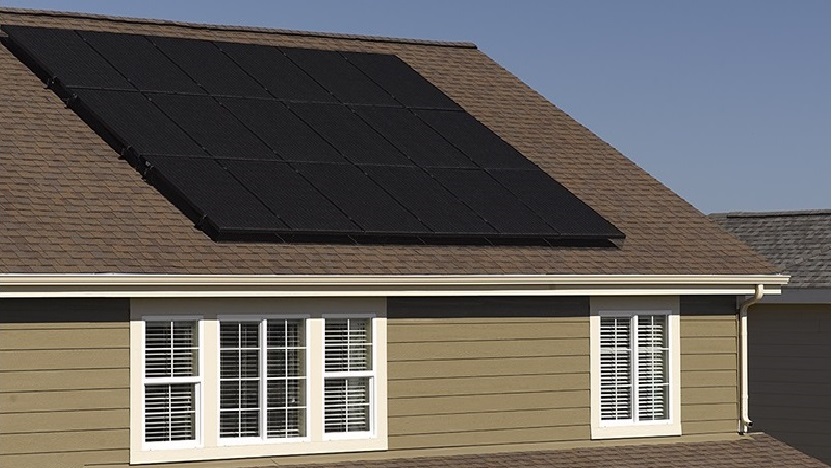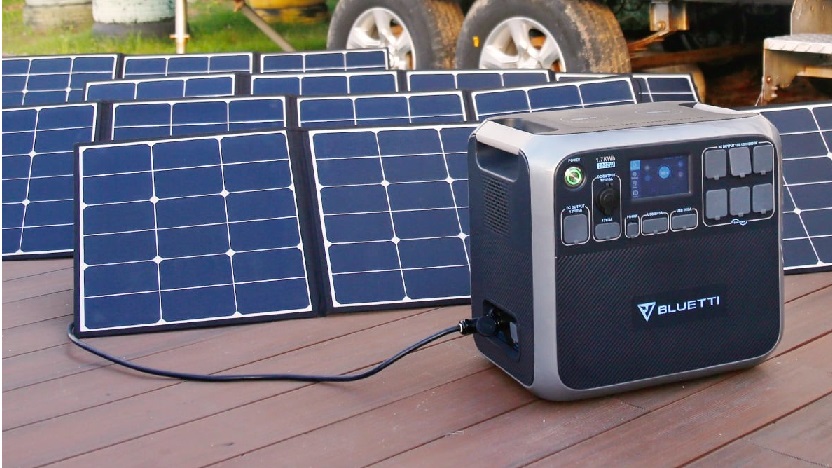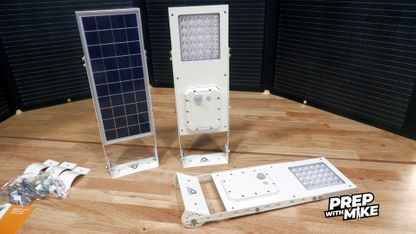 |
|||||
| ‘Helpful Information’ ~ Keep the Power On (with Solar) | |||||
| Solar Power for Your Home. | |||||
If you want to use solar power for your home, you have options. You may be able to buy or lease a system or sign a power purchase agreement. Your choice can affect how much you spend up front and over the life of the system, whether you get certain tax breaks or not, and your responsibilities when you sell your home. Evaluate the company, product, costs and your obligations before you make a commitment.
Solar power optionsIf you use a solar panel system — also called a photovoltaic or PV system — to produce electricity, you buy less electricity from the utility company and enjoy the benefits of renewable energy. The Department of Energy says most homes with solar panels get at least 40% of their energy from solar; that varies by house. Whether solar power will fill all your power needs depends on how much your system produces and how much you use. Is solar power right for you?If you’re thinking about using solar power in your home:
Buying a solar energy systemIf you buy solar panels, you pay the cost of the entire system. Costs vary depending on the system’s size, but can typically add up to about as much as a new mid-size car. You might pay for your system with a home equity loan, or get financing through the installer, a bank, a credit union or a finance company. Or, your county or state may participate in a Property Assessed Clean Energy or “PACE” program. Your county or state does not lend the money for a PACE program. Contractors or home improvement companies that sell solar panels and other energy efficiency improvements offer PACE financing. If you get PACE financing, a property tax lien is put on your home. You repay the lien by paying an extra amount every time you pay your property tax bill. You must pay your property tax bill — with the extra amount included — each time it is due, to avoid default and foreclosure. A property tax lien for PACE financing takes priority over your home mortgage. Some mortgage contracts may not allow you to add this type of lien. When you shop for a traditional loan or consider PACE financing, ask:
Because PACE financing is different from a traditional home loan, you may need to ask more questions of the company that is offering the financing, including:
Incentives & benefitsIf you buy a system, you may be eligible for federal, state or local tax credits or other incentives. The federal renewable energy tax credit for homeowners is equal to 30% of the cost of a system placed into service in 2019. The credit will gradually decrease in 2020 and 2021, and is scheduled to expire at the end of 2021. The Department of Energy has information about state-specific incentives for using renewable energy. You may receive other benefits from having a solar system. Depending on local net metering rules, your utility may pay you for power your system returns to the grid. You also may be able to sell or get credit for renewable energy certificates (RECs) related to the electricity your system produces. A REC is separate from the actual electricity produced; it’s a certificate that proves you generated a certain amount of renewable energy. If a business, including a home business, has solar panels and sells away all the RECs, it loses the right to tell customers it’s using renewable energy. That’s important to keep in mind if you have a home business and want to claim you use renewable energy. Review bidsCompare detailed bids from several companies. Bids should have specifics about the system, including:
If you own the system, you need to maintain — or pay someone to maintain — the panels and equipment, unless the seller includes that in the contract. Maintenance could include repairing or replacing the inverter or cleaning the panels occasionally if it doesn’t rain often. Your equipment may be covered by a manufacturer’s warranty for the initial period you have it. The companyWhen you look for a company, ask friends, family and neighbors for references. Check a company’s history with your state and local consumer protection agencies and state contractors licensing board. Ask if the company has the licenses, certificates or bonding required by your state, county and city. For example, your state may require an installer to have an electrical contractor’s license. Also, search the company name online and see what you find. Leases and power purchase agreementsIf you want to use solar power but not buy a system, you may be able to lease a system or sign a solar power purchase agreement. In either case, you’ll have a solar power system on your home. If you lease or have a PPA, you usually can’t claim RECs and aren’t eligible for tax credits or financial incentives, because those go to the system’s owner. LeaseIf you lease, a company installs a system on your house and you sign a contract to use the system. Contracts are long term; some last 20 years. During that time, you’re entitled to use all the power the system produces, and you’ll probably reduce the amount of power you buy from your utility. If the system produces more power than you need and your utility uses net metering, the utility may pay you or credit your account for power the system returns to the grid. Your contract may allow your monthly payment to increase over time. The leasing company will probably be responsible for system maintenance. Power purchase agreementIf you have a PPA, a company installs a system on your house, and you sign a contract to buy power the system produces. Contracts are long term and can last 20 years. Unlike with a lease, you don’t pay to use the system, and don’t automatically get all the power it produces. You pay for the power the system generates, at a price the PPA provider sets. Some PPA providers say they charge a reduced rate for power because they get the tax credits and incentives. Before you lease a system or sign a power purchase agreement: Review bidsGet detailed bids from several companies. Bids should give specifics about the system, including its brand, size and performance. You can use the Department of Energy’s customizable calculator to estimate how much energy a specific system will produce. A company may show you a comparison of what you might pay for energy over the next several years with and without using its system. It may estimate how much utility company rates will rise annually, and suggest that you’ll pay less for energy if you use its system, because you’ll buy less power from the utility. But it’s hard to predict future utility rates because they’re affected by many factors. Read through the bids. Compare what they say about:
Read the contractBefore you choose a company, read the contract. Be sure the terms match what the company’s ads, proposals and sales people told you. Understand:
The contract also should say:
If you sell your houseFind out how the contract will affect your ability to sell your house. Does the contract:
If you think a company’s product doesn’t live up to the advertising, you can file a complaint with the FTC and your state consumer protection agency. |
|||||
| ⭐ Bypass censorship by sharing one of these links: https://1realnews.com/energy-120/ or http://at.box1.ws/energy-120/ or https://box91.com/energy-120/ or https://box127.com/energy-120/ or https://box145.com/energy-120/ or https://box154.com/energy-120/ |
|||||
Daily Updates
Copyright © 2024 100% "Real" News







